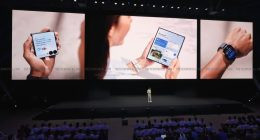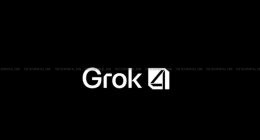Many times it is not necessary to buy a state-of-the-art computer for everything to work well. We just have to carry out some cleaning and order our equipment to make it work like the first days. If you are looking for something to boost your desktop computer since it has been running slowly, here you will learn some actions you can take to increase the speed of your computer.
Hard Drive Defragmentation
Defragmenting the hard drive is one of the best options to improve the reading speed of our computer. If you do not know what hard drive defragmentation is, you only should know that it is organizing the files stored on the hard drive.
Files are saved in different sectors of the hard drive by default. With defragmentation, you can read an entire file without changing sectors. With this, you will get a much faster reading. You could even consider equipping your computer with an SSD hard drive due to the high speed it offers. Solid-state drives use a different technology than traditional hard drives, so SSDs can access data more quickly, thus improving computer performance. This data includes elements such as the operating system, games, images, or music, and this way, you will get to optimize your PC and considerably improve the speed of your computer.
To buy that or other new and refurbished hardware to optimize your PC, you can check Boost Hardware.
Limit Startup Programs
If your computer is slow to start, check which programs start automatically. You may not realize how many programs are starting and running in the background. Those programs may have been set to start automatically when you purchased the computer.
On a Microsoft Windows computer, you can press the Ctrl, Alt, and Del keys at the same time. Select Start Task Manager, and open the Processes tab. You will now be able to see the processes that are running. You can close the program from Task Manager or go to the application and set it to not start automatically. Close any unused web browser tabs you have open because even with cached pages, the web browser checks these pages for updates that will slow down your computer.
Delete Programs You Do Not Use
When looking for software that starts automatically, look at all of your programs. Some come pre-installed on a computer when purchased, and these programs take up space on your storage drive. That includes additional web browser toolbars that may have been installed inadvertently or come pre-installed.
On a Windows computer, click the Start button, select Control Panel, then Programs, and click Uninstall a program. Go to the list of programs, select the one you do not want to keep, then click Uninstall. The system will not allow you to uninstall the programs you need to get the computer up and running. Uninstall any web browser toolbars you are not using. Although not as common anymore, web browser toolbars can be a form of bloatware that can slow down web searching.
Keep Your Software Up to Date
It is essential to keep your software up to date. Software companies constantly update their programs to make them faster and more efficient and reduce malware vulnerabilities.
The best method is to allow automatic updates as much as possible. For example, Windows 10 is one of the easiest operating systems to upgrade on a Windows computer since it is preconfigured to automatically install Windows updates for some programs. You can also manually check for updates by clicking the Windows button, selecting Control Panel, System and Security, and then Windows Updates. Select Check for updates to ensure there are no additional updates.
For computers running a version earlier than Windows 10, follow the same path to make sure Windows Updates have not been turned off inadvertently. When you receive messages asking you to install important updates, be sure to do so. Sometimes, the installation process also needs you to restart your computer. Restart as soon as possible to finish the updates. Always have running and up-to-date antivirus software. Any malware, especially adware, can cause significant slowdowns if it enters the system.
Clear Your Browser Cache
The browser cache helps us display the requested information faster. But sometimes, things go wrong, and the cache may not update correctly. That is a problem since if the cache is not updated when there is new content on the web, we will not see the changes, and it will show us information that is not correct. Or it can also make our computer slower when browsing the Internet.
Sometimes, the cache becomes corrupted and can cause problems with a website, such as not being displayed correctly or not allowing us to access it with our access credentials. That happens more frequently than desired, so when you detect a problem with a website, the first thing you should check is the cache and the best way to do this is by deleting the cache, browsing data, and cookies.
That way, you make sure that the browser’s cache is not interfering with the website in any way, and if the problems continue, you know that it is not the browser’s fault.
Turn Off Visual Effects
The most modern software is not only distinguished from its predecessors by its technical innovations but also by its elegant appearance, which includes many visual effects: animations, edge refinement, and display of window shadows, among others. However, these effects require computing power. If your computer’s performance decreases, it may be advisable to disable them. While disabling it means giving up some design elements, you will benefit from increased performance.
Conclusion
If you have been worried about how slow your computer is, perhaps now you have realized that it is nothing serious but that you will just have to make some adjustments. If you defragment your computer’s hard drive, clear the cache, and remove programs you do not use, you will probably get your computer running faster. Take the time to evaluate the situation of your PC and proceed to take the necessary actions so that it can run more smoothly.



